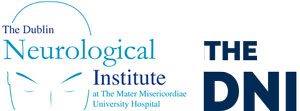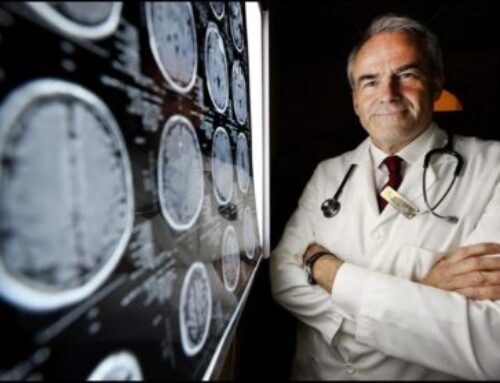In an article in the Irish Times, Sylvia Thompson brought together contributions from 5 experts in neurology on the topic of ‘how to maintain good neurological health‘ including Professor Tim Lynch the Clinical Director of the Dublin Neurological Institute. You can read the article content here:
From sleep to vitamin D, there is plenty we can do to protect our brains
Professor Tim Lynch Consultant neurologist and clinical director of the Dublin Neurological Institute at the Mater hospital.
The working brain is a fascinating biological mystery, but, sadly, is prone to disease as we age. Remarkably, one in two women and one in three men develop Parkinson’s disease, Alzheimer’s disease or stroke in their lifetime. People talk about “muscle memory”, however “brain memory” is vital as exercise stimulates our 100 billion brain cells (neurons) to generate new connections (synapses) between neurons and strengthen existing connections. The more neuronal synapses, the better the brain is in coping with ageing and life’s challenges.
Novel intellectual activity also stimulates the brain to generate more synapses. For example, a 77-year-old patient of mine with Parkinson’s disease is teaching himself Japanese.
Sleep is critical for long-term brain health. During sleep, the brain swells allowing fluid to wash through, and around, the neurons. Night-time is garbage disposal time for the brain: toxic proteins, involved in Alzheimer’s disease, accumulate during the day but are cleaned during sleep.
A Mediterranean diet is good for the brain as well as the heart. In particular, vitamin D is good for brain health as well as bone health. In Ireland, we should supplement our diet with vitamin D.
Avoidance of excess alcohol or recreational drugs is important for normal brain development, cannabis use in teenagers can lead to serious psychiatric disease such as psychosis.
A keen sense of humour and a positive perspective on life is healthy. A good belly laugh releases the chemical dopamine, a reward neurotransmitter, into the brain.
Dr. Rachael Doyle, Consultant geriatrician, St. Vincent’s University Hospital and St. Columcille’s Hospital, Dublin.
Dementia and Parkinson’s disease are two of the most common neurodegenerative disorders in older people. Regular exercise, adequate sleep, giving up cigarettes and reducing or stopping alcohol in middle age lowers the risk of dementia in older age. Treating high blood pressure, high cholesterol and checking for diabetes, hearing loss and atrial fibrillation (irregular heart beat) can also delay the onset of and slow down the rate of progression of dementia. It’s important to distinguish between social withdrawal caused by dementia and social withdrawal caused by depression. For anyone diagnosed with dementia, de-cluttering your home is a good idea as clutter can create a lot of noise and slow down decision making. The Alzheimer’s Society provides valuable information and supports for people living with dementia.
Parkinson’s disease can begin with a resting tremor of the hands or a more general slowing down, an increased number of falls or a quietening of the voice. Early referral to physiotherapy, speech and language therapy, and occupational therapy will help those diagnosed with Parkinson’s disease to maintain their independence and quality of life. Advocacy groups such as Parkinson’s Association of Ireland, Move4Parkinsons also run choirs, dance and boxing classes.
Dr. Lisa Costelloe, Consultant neurologist at Beaumont Hospital, Dublin.
Multiple sclerosis (MS) is the most common chronic inflammatory condition of the nervous system. It affects about 9,000 people in Ireland. It is an autoimmune condition which means that the symptoms of MS happen as a result of an overactive immune system which attacks its own healthy tissue. In MS, it is the protective myelin sheath that surrounds nerves in the brain and spine that is targeted. When the myelin sheath is damaged, this leads to problems transmitting nerve impulses between the brain and body, resulting in many symptoms including blurred vision, difficulty walking, numbness, bladder problems and fatigue. Each person with MS will suffer from a different range of symptoms.
Autoimmune conditions such as MS are more common in women than men. It is usually diagnosed between the ages of 20 and 40. There are genetic and environmental risk factors for MS. Vitamin D deficiency due to lack of sunlight is one environmental risk factor and people with MS should take a vitamin D supplement.
People with MS should also give up cigarettes if they are smokers. A healthy diet, regular exercise and stress management are also recommended.
Though MS is not curable, there are many effective treatments that can reduce the frequency of MS attacks and help with individual symptoms as they occur. People with MS will also need individualised treatment plans with varying inputs from physiotherapists, occupational therapists, speech and language therapists, urologists, psychologists and MS nurse specialists.
Dr. Diane Gillan, Senior clinical neuropsychologist, Beaumont Hospital.
Functional neurological disorder (FND) encompasses motor and sensory symptoms such as seizure-like episodes, limb weakness, memory problems, spasms or tremor that are genuinely experienced and outside of the person’s conscious control. The symptoms may appear similar to those seen in neurological conditions such as epilepsy, Parkinson’s disease, stroke, and multiple sclerosis, and can be similarly debilitating, but they relate to a problem with functioning of the nervous system, rather than structural damage or disease. In neurology outpatient clinics, patients with FND are the second most common reason for referral after headache. People who come to our service describe experiences of altered or loss of awareness, or abnormal movements similar to epileptic seizures (but without abnormal electrical activity in the brain).
Others have difficulty with walking and balance or have persistent weakness in their limbs but without underlying neurological disease. In the past, it was assumed that psychological factors such as stress were the primary cause. However, the current understanding is that a range of biological, psychological and social factors contribute to the development of FND.
Because people experience a wide variety of symptoms, each person needs a different treatment plan. A clear explanation of the symptoms and involvement of a multidisciplinary team is beneficial although clear care pathways do not widely exist.
A variety of health professionals support people with FND depending on their symptoms. These include neurologists, physiotherapists, speech therapists, psychiatrists, psychologists, occupational therapists and others.
See also neurosymptoms.org and fndhope.org .
Orla Hoban, Clinical nurse specialist in neurology in CHI at Temple Street which is the referral centre for children with neurological issues from all over Ireland.
The most common neurological conditions diagnosed in children are epilepsy and headaches. When children have seizures, it can be very upsetting and scary. Understanding them can take away some of the fear. We advise parents to time the event, ensure a safe environment and stay with their child. Depending on the length of the seizure, medicine to stop the seizure might need to be given. Medication compliance is very important for good seizure control. We ask parents to be open and honest with the child about their diagnosis. We encourage all children with epilepsy to lead as active a life as possible. Children should be supervised when swimming. Contact sports can be played with appropriate precautions. We recommend the use of headgear when cycling, horse riding, etc. We advise against boxing. For a small proportion of seizures, children need to avoid flashing lights. Epilepsy Ireland is a great resource and support for parents.
Lifestyle factors are key to help prevent headaches. These include good sleep habits, regular exercise, good hydration, reduced screen time, stress management and avoid skipping meals.
Depending on the type of headache, simple pain relief or going to bed can be beneficial. Be mindful that certain foods can trigger headaches, so keeping a food diary can be useful.
It’s important to be open with teenagers about their diagnosis and prognosis. Encourage them to be independent and take control of their own condition and prescribed medications. We encourage the teenager to keep asking questions in the clinic as this will help them in their transition to adult services.
This article appeared in the Irish Times on the 7th July 2021 and can be viewed at this link:





